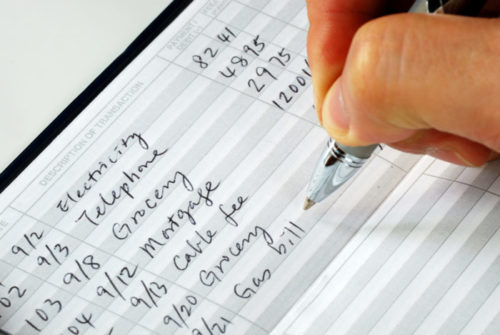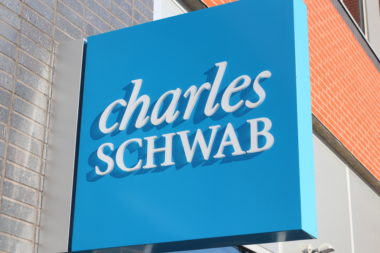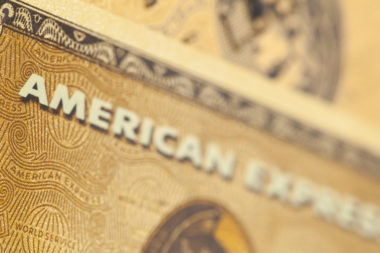On average, 40% of Americans couldn’t handle a $400 expense without borrowing money or selling something. That’s nearly half of the country. It begs the question, just how much money should you have in your checking and savings account in the first place?
The answer to the question isn’t an exact science. However, there are several things that you can consider in order to calculate just what amounts would work best for your particular situation.
Table of Contents
How Much Money Should I Keep in My Checking Account?
To calculate the amount of cash that you should keep in your checking account, start by adding up your living expenses. Include all bills and payments that are absolutely necessary (i.e. separate your wants from your needs). This part of the process will be different for everyone.
A household with a mortgage, two car payments, and three children will likely need several thousand more dollars per month than, say, a single individual who works remotely and lives in a studio apartment in an urban center.
Once you have a solid number for your monthly expenses, you can start to calculate how much you need to keep in your checking account. Many financial advisors recommend keeping at least one and if possible two months’ worth of expenses readily available in your checking account.
In addition, you should consider creating a buffer of extra cash. For instance, if you find that you need $5,000 per month, it would be wise to set aside $11,000 or even $12,000 instead of just $10,000 to cover two months of expenses. This can help with a couple of different things:
Meeting the Minimum Balance Requirement
A checking account buffer can ensure that you have money available to cover any minimum balance requirements.
Minimum balance requirements — that is, a required amount of money that you must keep in your account at all times — can run the gamut from pennies up into the hundreds or even thousands of dollars. If you fail to maintain a sufficient quantity of cash in your checking or savings account to meet this requirement, you may incur a fee.
Make sure to take the time to review your terms in order to understand how much cash you need to keep in your account at all times.
Avoiding Overdrafts
Overdrafts can incur overdraft fees and can damage your ChexSystems report. They occur when you spend money that you don’t have in your account, thus pushing the balance below zero.
Overdrafts can happen even when you’re being extra careful. For instance, if a merchant uses a pre-authorization hold, you may think there is money in your account, even though it is about to be used up by the pending charge. If you then spend the money a second time, it can result in an overdraft.
A buffer creates peace of mind that you won’t overdraft when spending money directly from your checking account.
How Much Money Should You Have in Savings?
Once you’ve sorted out how much cash to keep in your checking account, it’s time to decide where to direct your other funds.
Once again, there isn’t a one-size-fits-all solution here, as this decision is impacted by your short- and long-term financial objectives, life goals, and the amount of income you have.
Nevertheless, the first place you should consider putting money aside is a savings account. You should try to set aside between three and six months of living expenses in your savings account.
The Benefits of Keeping Money in Savings
While your checking account cash should be used for regular month-to-month expenses, having money in a savings account — especially a high-interest savings account — enables you to both earn interest and save up lump sums of cash. The purpose of this larger, less available sum should be for things such as:
- An emergency fund.
- A downpayment on a house.
- Purchasing a car.
- Getting married.
- Having children.
- Funding vacations.
- Financing higher education.
You can also use your savings account as a short-term spot to stash cash for retirement, although you should ultimately look for an IRA, 401(k), or another retirement option to take greater advantage of the power of compound interest over time.
Should I Save Money or Pay Off Debt?
When calculating how much money to put into savings, one question that arises is how much of that money should be used to pay off debt. For instance, if you have $1,000 in savings and you also have $1,000 on a high-interest credit card, the higher interest rate on the debt can quickly offset the advantages of having money in the bank.
However, if you drain all your savings in order to pay off debt and then an emergency arises, forcing you to borrow more money, you can end up in the exact same position as before.
You should strive to strike a balance. Attempt to keep your debt at manageable levels while simultaneously building up the amount you have in savings.
How to Make a Savings Plan
If you’re struggling to maintain a healthy balance in your checking and savings accounts, here are a few suggestions to help you set up a savings plan:
- Create a solid budget: Take the time to carefully consider all of your income and expenses. This will help you understand exactly how much you can save.
- Look for unnecessary expenses: Activities such as recreation and eating out are expensive and often easy to cut from your budget.
- Pay off high-interest debt: Eliminating expensive debt, such as credit card debt, can help to free up more cash over time.
- Set up a schedule to monitor your finances: Checking in on your bank accounts on a regular basis enables you to catch any unhealthy spending as early as possible.
- Recycle, reuse, and exercise preventative maintenance: From changing your car oil, to repurposing old wood into a new table, to going thrift shopping, there are plenty of ways to find more value around you without spending extra cash.
If you take the time and effort to start saving now, you’ll be able to establish a healthy balance in both your checking and savings accounts, setting yourself up to handle whatever monetary challenges life throws your way.
Image Source: https://depositphotos.com/





